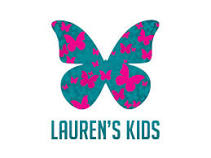 Some of the most extraordinary people you’ll ever meet are those who dedicate their time and lives to serving as guardians and foster parents. They experience joy and triumph, but also face countless challenges. In the U.S., 397,122 children currently reside in foster care, while in Florida there are approximately 8,000 children in foster care on any given day. That’s why May is designated National Foster Care Month, a time to honor and recognize the foster care system and those amazing individuals. The Lauren’s Kids foundation understands one of the most difficult but important challenges facing these extraordinary adults: how to help a foster child who has experienced sexual abuse. Every child has a history, a story that led him or her to a foster home. Sadly, many of these children’s stories include the horrors of sexual abuse. The issue is not exclusive to children in foster care, however, as 1 in 3 girls and 1 in 5 boys endure sexual abuse before their 18th birthday – 90 percent of the time that abuse occurs at the hands of someone who the child knows and trusts. This experience, as unfortunate as it is, means that the caring adults in that child’s life must be properly informed and capable of addressing their needs. Often the child has been affected by sexual abuse prior to entering foster care, making it particularly difficult for foster parents to recognize the signs and relate to the child properly. Without realizing it, they could inadvertently trigger a negative response from him or her that is actually a reflection of long-ago mistreatment. Lauren’s Kids Trauma Informed Care was created in collaboration with the Florida Department of Children and Families, Florida Council Against Sexual Violence and a trauma informed care expert to support families and organizations that care for abused children, especially those seeking support within the foster care system. The training teaches foster parents how to approach the actions of a child through a trauma informed lens, providing practical ways to correct regressive and even violent or over-sexualized behaviors of a child who has been abused. The training course uses video interviews, short films, slideshows and regular content quizzes to develop techniques a caregiver can use to help a foster child recover from past trauma and thrive in recovery. This is of utmost importance to families providing foster care because healing can and does happen with proper care, attention and approach. For example, the Kit features stories of children who have experienced traumatic abuse as a tool to provide insight to foster parents, with the hope that they can be used as a framework to understanding and accepting the child’s history – an important step in the healing process. Quick tips from the training for foster parents include:
Children in foster care have a wide range of needs, both physical and emotional. This training provides useful practices that can be used to help these children recover and thrive. The training only takes about three hours to complete, but the skills and knowledge it passes along will last a lifetime. We are very proud to work with foster parents to help them recognize what their foster children need in order to help them become survivors. To learn more about Lauren’s Kids and our work to prevent child sexual abuse through education and awareness and help survivors heal with guidance and support, please visit LaurensKids.org. To access this Trauma Informed Care resource, visit LaurensKids.org/education/resourcestrainings.
1 Comment
|
Guest FeaturesThere are many different definitions of "parent" and a diversity of perspectives on parenting. One thing remains... good parenting is rooted deeply in love. This is our attempt to capture real stories from real people. |
